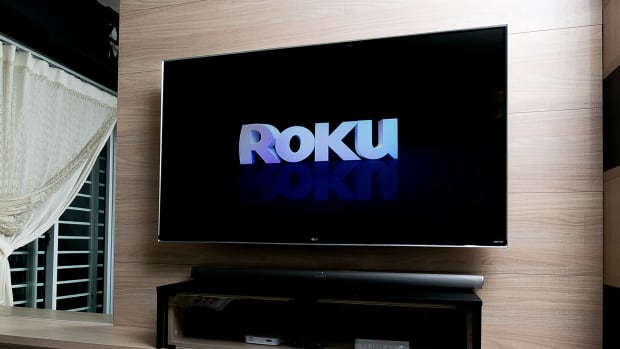The meteoric rise of the pandemic stocks led to investors who found themselves flush with cash as work from home companies benefited.
Demand for the stocks rose exponentially, mirroring consumer enthusiasm for products such as Peloton ((PTON)), Netflix ((NFLX)), Roku ((ROKU)) and Zoom ( (ZOOM) ) as people stayed at home and watched movies, talked to their friends and family members on video calls and exercised at home instead of gyms.
Investor optimism and enthusiasm was off the charts in the second half of 2021 and even in 2022 despite declining revenue as work from home stocks fell out of favor when the economy reopened and some people returned to the office.
Several of these stocks have fallen even more recently as volatility in the market rose and consumers shifted their interests and are spending money traveling, eating at restaurants and attending concerts and movies.
The year-to-date losses for these stocks through May 13 are eye-opening. Shopify ((SHOP)) dipped by a whopping 70.47.07% while Zoom suffered a loss by 48.53% and DocuSign ((DOCU)) fell by 49.58%.
“Unfortunately for the most of the pandemic darlings, they were able to pull forward years worth of demand for the products being at the right place at the right time and reached massively lofty valuations,” Art Hogan, chief market strategist B Riley Financial, told TheStreet. “Now we are seeing them rapidly come back down to earth.”

Shutterstock
Good Products vs Good Investments
Even by January 21, the first three weeks of trading in 2022, many of these stocks reported massive losses. Shopify fell by 35.3% while Netflix dipped by 33.5%. Coinbase( (COIN) ) saw its stock value dip by 23.5%, but its year-to-date loss is 72.97%.
These stocks were driven “by all the liquidity infused into the financial markets in response to the pandemic,” Robert Johnson, a finance professor at Creighton University, told TheStreet.
“This is what drove the meme stock phenomena, the pandemic stocks and the bull market in cryptocurrencies,” he said.
Investors often fail to understand is that good products such as Peloton’s bikes do not mean they are good investments.
“I am a big user of Peloton,” Johnson said. “I have encouraged others to consider buying the bike and the treadmill. But, I have never encouraged anyone to buy the stock. The economics of the business simply did not justify the lofty valuation.”
The risk of owning some stocks is higher, especially if there is already a lot of competition in the industry already. Peloton has not shown that it will “ever be able to have positive earnings,” he said. “People fell in love with revenue growth and failed to realize that strong revenue growth does not necessarily translate into profit. What good is it for a company to sell a product for $20 when it costs $22 to produce and deliver?”

Future Earnings To Be Lackluster
The earnings of these pandemic stocks are likely to be more anemic in the future, even as inflation rates subside.
“I would characterize our expectations for the growth of most of these names to be normalized as we move beyond the pandemic environment,” Hogan said. “A lot of these companies offered us services that were essential during pandemic lockdowns that now will likely become just one of many choices we have. The reopening process has certainly been an eye-opener for a lot of the companies that really flourished during lockdowns.”
CFRA, a Charlottesville, Virginia-based financial research company, has a hold rating on Roku, Peloton, Zoom, Netflix and Etsy ((ETSY)).
Stocks such as Peloton, Zoom and Netflix will continue to be impacted when consumers lose confidence in the economy or have less disposable income as they shift their spending elsewhere, Adam Parker, CEO of New York-based Trivariate Research, told TheStreet.
“These former darlings were the beneficiaries of the pandemic and have fallen,” he said. “The path of recovery is whether they can reinvent themselves or generate free cash flow. Not all of these stocks will be winners and many could be losers. “When the consumer’s income slows you will see that behavior. That bodes more poorly for stocks like Roku and Netflix.”

Shutterstock
Zoom’s management team has been received well by Wall Street and other investors and has a lot of value to the brand name, Parker said. Back in August 2020, Zoom’s market cap was worth more than Morgan Stanley and Goldman Sachs combined.
“Zoom has more potential than Peloton and Netflix,” he said.
Investors should focus on adding sectors that are generating more revenue because consumers feel comfortable venturing out more and on stocks where there is gross margin expansion and can produce positive free cash flow for the next six to 18 months.
Lofty Expectations
Lodging, entertainment and some banks are sectors that are producing more interest from both consumers and investors.
“Investors should want exposure to industries that benefit as things open up,” Parker said.
Many of the pandemic work from home stocks had high quality problems, Steve Sosnick, chief strategist of Interactive Brokers, a brokerage based in Greenwich, Conn., told TheStreet.
“Their huge Covid-era success became unsustainable,” he said. “It brought years of future growth into the present, making forward comparisons tough. If I have a Peloton or Roku, do I need another in the immediate future? If I'm stuck at home I might buy cute stuff on Etsy, but how much do I need, and would I rather spend that money on experiences once I can enjoy them again.”
The expectations of how much revenue the companies could generate by some investors were unrealistic, Sosnick said.
“Investors extrapolated the unsustainable levels of growth into the future,” he said. “‘Growth at any price" replaced the classic "growth at a reasonable price.'"

The market is currently repricing growth across all sectors and stocks.
“The stocks with the loftiest expectations and/or marginal profitability are bearing the largest brunt,” Sosnick said.
Investors should seek out companies with long-term sustainable business models and not be “wowed by exponential revenue growth,” Johnson said.
Many of those stocks did not deserve those valuations and lack sustainable long term business models.
Warren Buffett's mentor Benjamin Graham wrote that “in the short run, the market is a voting machine but in the long run, it is a weighing machine.”
The fundamentals of a business will win in the long run, he said. “A company like Peloton may deliver a great product, but does it deserve its current valuation in a very crowded exercise space? “







